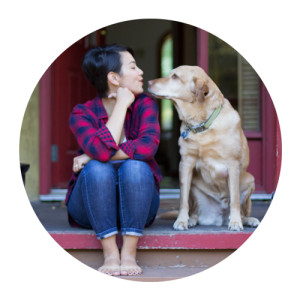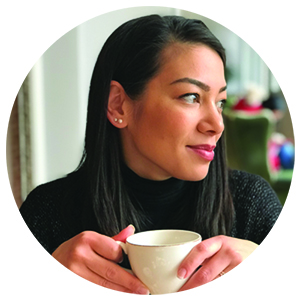Friends, I have been living a lie and I only realised it today, my 39th birthday.
I preach, loud and proud on my soapbox about how everyone brings a gift to their community. I talk about how life should not be based on accomplishments, test scores or aptitude but on generous curiosity, reconciliation, and mutual respect. I teach about belonging and inclusion and what that looks like for people on the margins – people with disabilities, refugees and the homeless.
But I base my self-worth on the complete opposite. I beat myself down because everyone has finished their Masters degee before me (and you can probably guess that this is, in reality, only a handful of people). I kick myself because I have not written a New York Times bestseller. I dwell in negative self-talk because I don’t exercise enough, I eat too many chocolates, am not financially stable, and am not a good enough mother, daughter, sister, wife, artist, intellectual…the list goes on.
Not only that, but I am dripping, sopping wet in resentment and bitterness because, despite all my best efforts and persistent faith, life has not gone my way. My life as a Christian and servant of Christ has been based on a misconception that says it is about how much I can do, how many indulgences I give up and that in the end, I will be rewarded for all of my accomplishments. I know in my head that God promises nothing of the sort but I want it to be true because that would mean that I have some degree of control. The truth however, is that, first of all, God does not promise any rewards this side of heaven. Contrary to the Prosperity Gospel, God never says that if you pray hard enough you will win the lottery, get into the university you want, or get pregnant when you want, if ever. Furthermore, he is also not keeping a tally of converts, good works or how many times I have read through the Bible so that those gold stars can be traded in for a brand new car or a Hawaiian vacation. There are no sticker charts in heaven. And yet, I still hope and push myself constantly to do more, be more and accomplish more in the hopes that one day, it will pay off and I will be #blessed.
But when my self-worth hinges too much on what I accomplish in a day, what am I saying about the worth of other people who cannot accomplish as much? This mindset of accomplishment is in complete conflict with what I believe to be true for people like my daughter Ella, who has Down syndrome or any of my children for that matter. I tell them not to compare themselves to others and yet I do…all the time. I struggle immensely with others’ successes and wallow in my own failures. I tell my children that God loves them for who they are, not what they can accomplish, but question the value of my life because I haven’t done more.
Accomplishment-based model versus a Contribution-based model
The problem is that I am living with an accomplishment-based approach to life instead of a contribution-based approach. An accomplishment is the fulfilment of a task. It is something one can do well but often for the benefit of oneself. In my life, the more I can tick on my to-do list the more worth I have. The better I am, and by that I mean better than everybody else, the better I feel about myself. If I accomplish a task, it might serve someone else but often, it only serves myself. If someone has a lot of accomplishments it is a credit to that person and focuses on their credibility versus the impact that those accomplishments have on the wider community. Please understand that I am not saying accomplishments are bad. However….
Contributions are for the common good, “the act of giving in common with others” or “that which is given toward a common end.” They are made within a community and are dependent on others to receive.
After 39 years, I am only now realising that I, personally, need practice what I preach and live with a contribution-based approach to life. This approach is akin to something called Asset Based Community Development (ABCD). This approach to community engagement starts with people’s gifts and strengths and uses them as a springboard to creating change for the common good. As opposed to an accomplishment-based approach which can be independent of the other, the contribution-based approach places ourselves in the context of a community. The contributions we make compliment another’s contributions – they are not in competition with them.
This pandemic has showed us, more than ever, that we are built for community. As John Donne said, “No man is an island.” We are in this together. We need each other. What would happen if we started measuring citizens in society, children in school or colleagues in the workplace by what they contribute to the common good? How would we view ourselves?
As I enter my 40th year, I am going to carry this with me and instead of focusing on what I have (or haven’t accomplished) look ahead to what I can contribute. What can I contribute today? Perhaps it is because I haven’t accomplished much by worldly standards, but I want to stop living up to an invisible expectation that I can’t live up to. This is not to say that I will stop working towards that damn MA that will take nearly a decade to complete, nor does it mean I will stop trying to save money so that I am not left destitute on the doorstep of retirement, but it does mean that I will stop living a lie. I will stop living according to one philosophy, whilst I tell my children to live by another. I will stop thinking about what other people think of me and think instead of what I can give to others.
















Leave A Reply